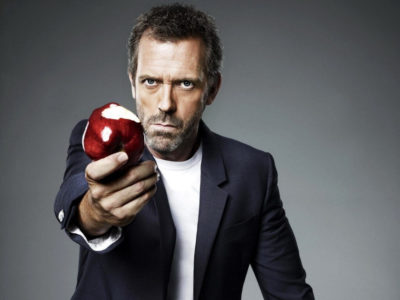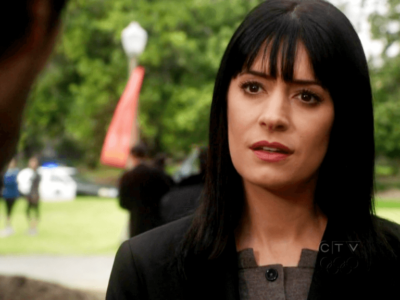I’ve always found it funny that the things that make novels so great are incontestably negative: tension, drama, conflict. Apparently this sentiment is also true of life because we can’t appreciate the good without the bad or the devastating without the remarkable. Crohn’s Disease has given me this insight, but not without some scars along the way (literally). You should know this isn’t a diatribe; I promise I’m not bitter about anything.
I was diagnosed when I was 12. I don’t like the word “diagnosed” because of the finality, as if my life would suddenly be divided into some all-consuming “before” and “after” story. Who wants that? No one wants to be the sick diagnosed kid, least of all the kid who very much loves school and most of all wants to be healthy enough to stay.
Crohn’s Disease, according to medical professionals and the many pamphlets I’ve read (plus Google), is a chronic inflammatory condition that affects the gastrointestinal tract and prevents proper absorption of nutrients as well as causes a host of other problems—anemia and fatigue among them. There’s no known cause and no known cure. However, remember how I said this wasn’t a diatribe? Good, OK, moving on.
The problem with having a chronic condition is that it requires a lifestyle adjustment. How does a not-yet teenager adjust her lifestyle, you ask? She doesn’t because she doesn’t know how. Instead, she does the next best thing: She pretends none of it ever happened. Reality becomes a constant battle to stay as “normal” as possible on the outside. Because when people ask “How are you feeling?” The only acceptable answer is “Fine,” even if you’re not.
Being Chronically ill is a lot like taking one too many punches to the chest. The hits pile up, getting harder and faster and meaner until you finally hit your breaking point. People have those, apparently. At that point you can’t do anything except cry because there’s nothing left with to fight back…and then the day starts over. You’re OK for a while. Rinse. Wash. Repeat.
After the diagnosis, I felt compelled to inform my classmates that I wasn’t on some fad diet and hadn’t suddenly defied nature and dropped 20 pounds on a whim. No, I explained that I was sick; it wasn’t a choice.
And interestingly enough, much to my confusion, boys were sympathetic, but girls (an alarming number of them) were jealous. “You’re so lucky,” they said as they scanned my 80 pound (and dropping!) figure. I wasn’t sure how to feel. Logically, I knew I was ill and that my special brand of thin was wrong, but a horrid thought (and one that stayed with me longer than I’ve ever admitted) crept in: Maybe, this isn’t so bad. Maybe, if I can’t be the healthy girl, then I can certainly be the thin girl.
I spent the next few years learning how to gain control over the situation. I started eating less in public, so no one would see the nutritional shakes I had to substitute for solids. I switched to dresses and skirts to hide the weight loss; jeans were no longer an option (always baggy).
But it was hardest to ignore the fatigue. So much more than simply being “tired,” it was a crushing exhaustion. All day, I’d walk through school, and it took everything I had to ignore the significant awareness of my heartbeat in my chest right before a blackout hit. But I pushed on in spite of this.
At the time it seemed brave, and that’s exactly how I felt. I blame, in part, the media for putting this idea in my head. We’re always placing sick people on pedestals, rewarding them for possessing some noble hidden strength. I confess I wanted that too; I wanted to be seen as strong, but I had no idea how much damage I was really doing.
In high school, I riddled myself with tons of hard classes (IB, AP and other acronyms I’m sure) because I was convinced I wouldn’t get into college without them. But the thing about Crohn’s is that flares can be induced a few different ways. Sometimes they happen of their own accord, but poor diet can also set one off, or, on select other occasions, stress.
I tried so hard to make my senior year perfect. I was summa cum laude. I had perfect friends and a perfect boyfriend and was perfectly happy being so perfectly thin. It took a baseball-sized abscess to put me in my place, which so happened to be the ER on Christmas Eve. Three invasive procedures, two blood transfusions and a bowel resection later, I finally realized that Crohn’s couldn’t be ignored. Author John Green summed it up perfectly: “That’s the thing about pain. It demands to be felt.”
I spent 29 days in the hospital. It should be noted how far modern medicine has come; my doctors needed a mere 29 days to fix five years worth of repressed illness. Perhaps, not in it’s entirety; I was down 15 inches of small intestine, (and my appendix for kicks) and still had to come to terms with the fact that I wasn’t OK. Not yet. Not really.
It’s difficult to describe the way eating still feels sometimes. I am technically in “remission” right now, meaning I live a temporary, symptom-free existence, but I’ve never truly found this to be the case. Nausea is a constant, ever-present (though thankfully mild) threat the moment food goes down my throat; though, I can simply combat it by eating smaller meals throughout the day.
I did end up getting into my first-choice school, and I don’t worry so much about being thin anymore, or the fact that I still feel tired all the time. Instead, I worry about which graduate program to enroll in post Bachelor’s or whether to spend my Saturday reading “Harry Potter”—again—because I’m 20 and I can.
I love college. I have wonderful roommates and a major that makes me excited for the future. Even on bad days when I’m exhausted and hungry-nauseous and I just want to slam the door shut and rip my clothes to shreds because they never seem to fit, I can’t help but laugh a little.
I’ve learned to take myself less seriously, and thanks to that I feel OK. In fact I feel more than OK. I feel like I’m exactly where I’m supposed to be, and Crohn’s hasn’t stopped me. So what if I can’t eat gluten? Harry had to save the wizarding world from a raging, nose-less lunatic. Who am I to say that I have problems?



















